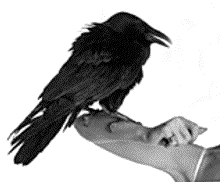Things, Tools and Touch
Exploring New Materialisms in Science, Technology and Medicine Studies
A monthly reading symposium arranged by
Dept of the History of Ideas, Dept of Science Studies & Centre for STS-Studies, Aarhus Network for Science Technology and Medicine Studies & Research Network for Material Culture, Cognition and Nature, University of Aarhus
The last decade have seen the appearance of a growing body of research pointing toward a
increased interest in the role of material culture, material agency and `artifactuality' inside as
well as outside science, technology and medicine studies. One example is art historian W. J. T.
Mitchell, main protagonists of the visual turn that supposedly supplanted the linguistic turn in the
1990s, in describing the anthology Things That Talk (2004) as an example of
"advanced research in what might be called the 'new materialism.' Unlike the old
materialism, which dreamed of a positive science, purified of linguistic accident, ideological
prejudice, or fantasy, the new takes aim directly at the figuration and imaging of objects,
factoids, and things."
To explore this potential `material turn' researchers, curators and doctoral students within history
and social studies of science, technology and medicine are invited to participate in a new
reading symposium devoted to these `new materialisms'.
It will meet once a month from April until December at a museum or research institution in
connection with the University of Aarhus to discuss a book according to the list below. The
symposia will take place 12-3pm consisting of an optional brown bag paper presentation with
lunch followed by 2 hours of discussion of the reading concluded by an optional tour of the
hosting museum/institution. The discussions will be in English or Scandinavian depending on
the participants. We expect to be able to be able to pay for the reading materials and lunches
for all participants.
We expect to be able to accommodate all interested but if we will have to limit the number of
participants we reserve the right to decide who can participate with priority to doctoral students.
It is not necessary to attend every meeting to participate but priority will be given to those
expressing their intention in following the whole symposium. Those interested in participating
should send an email expressing their interest by Monday April 21 to Kristian Hvidtfelt Nielsen,
Dept of Science Studies at khn @ ivs.au.dk. For the first seminar on Wednesday April 30 the
readings will be sent out electronically and for the following meetings participants are requested
to purchase books that will be reimbursed against receipts by the end of term.
It is possible for doctoral students to follow the reading group for credit as a 5/7.5 ECTS PhDcourse.
Students taking the course will be required to attend an additional seminars and for 7.5
ECTS write a longer (20-25 pp) research paper. The conclusion of the PhD course will be
concluded with a public symposium where the students present their final papers.
Welcome!
|
Preliminary Schedule
Seminar 1: Wednesday April 30 at the Steno Museum
Aarhus Network for Science Technology and Medicine Studies Brown Bag Presentation:
Mats Fridlund, University of Aarhus & Medical Museion, "Matter Matters: New Materialisms
and Artifactualities in Science, Technology and Medicine Studies"
Readings: Introduction chapters from the following volumes:
• Arjun Appadurai, ed., The Social Life of Things (1986)
• Daniel Miller, Material Culture and Mass Consumption (1987)
• Steven Shapin & Simon Shaffer, Leviathan and the Air-pump (1989)
• Bill Brown, ed. Things (2004)
• Lorraine Daston, ed., Things That Talk (2004)
• Daniel Miller, ed. Materiality (2005)
• Chris Tilley, et al, ed., Handbook of Material Culture (2006)
Seminar 2: Wednesday May 14 at Naturhistorisk Museum
STM-Brown Bag Presentation: Adam Bencard, Medical Museion, KU, "Affects and Materiality"
Reading: Adam Bencard, History in the Flesh: Investigations into the Discursive Figure of the
Historicized Body, phd-dissertation, University of Copenhagen (2007)
Seminar 3: Wednesday June 4 at Moesgård Museum
Presentation: Half-day contact workshop on Danish materiality studies in connection with
DASTS conference
Reading: David Edgerton, The Shock of the Old: Technology and Global History since 1900
(2007).
End of Term STM-Seminar: Wednesday June 11
Presentation: TBD
--- Summer break ---
Seminar 4: Wednesday August at the Antikmuseet
STM-Brown Bag Presentation: TBD
Reading: John Law, Organizing Modernity: Social Order and Social Theory (1994) & John Law,
Aircraft Stories: Decentering the Object in Technoscience (2002), selections.
Seminar 5: Wednesday September
STM-Brown Bag Presentation: TBD
Reading: Chris Tilley, et al, ed., Handbook of Material Culture (2006)
Seminar 6: Wednesday October
STM-Brown Bag Presentation: TBD
Reading: Peter-Paul Verbeek, What Things Do: Philosophical Reflections on Technology,
Agency, and Design (2005)
Seminar 7: Wednesday November
STM-Brown Bag Presentation: TBD
Reading: Daniel Miller, ed. Materiality (2005)
Seminar 8: Wednesday December
STM-Brown Bag Presentation: TBD
Reading: Peter Galison, Image and Logic: A Material Culture of Microphysics (1997)
|
